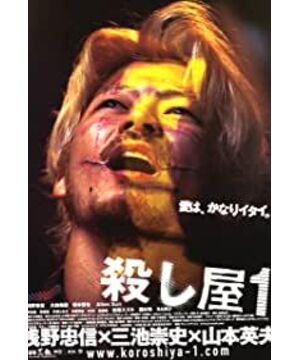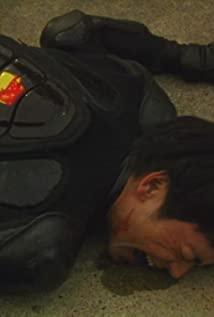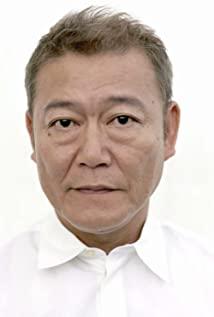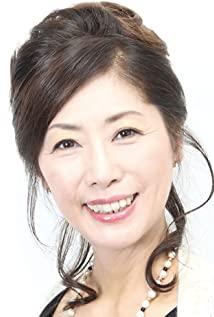First of all, let me talk about my views on cult. Some people say that the reason why many people don't like watching cult is not because of the bloody violence and pornography in it, but because cult can reflect the nature and dark side of people and society to a certain extent. And people generally don't or don't want to touch, or even admit that there is such a thing, so they resist cult films. And people who like to watch can be attributed to the existence of voyeurism (except for those who are purely curious). Either you want to peek into the dark side of yourself, or it's like peeping into the dark side of others or society. Of course, the cult mentioned here is of a very high level, a cult that can really express the deep-seated problems of people and society through cult. And Killer Hajime is exactly such a movie in my opinion.
Before talking about Yuanyuan's love, what needs to be paved is Wang Xiaobo's "East Palace and West Palace", or "Tenderness Like Water". In "East Palace and West Palace", the yamen and the female thief, the police and the people caught by the police, are opposed in terms of identity politics, and there are huge discordant factors. The yamen is the perpetrator, the female thief is the victim, Xiao Shi is the perpetrator, and Alan is the victim. Alan's love for Xiao Shi comes precisely from this. Yes, Alan is a masochist. He likes to be hurt by people who have power over him. Being able to hurt not only means that he has the ability to protect, but also means that he needs to be protected. As a party with a female mindset in the homosexual side, Alan needs to be protected precisely because of the nature of ordinary women.
Now let's talk about Kakihara. At the beginning of the film and even throughout the whole film, Yuanyuan showed a very strong dominance, acting like a pure sadistic pervert that has nothing to do with love, but as the plot develops, we found that although he is strong to everyone, the film does not The flip side of that is that he doesn't do that to his boss. His position on the gay side is that of the abused side, that is, the weaker side. And I think there is exactly a fit between the two, venting and being vented. Fierce as a yaksha during the day, tender as water at night. That's exactly what Kakihara is like, he can still be as fierce as a Yaksha during the day, but at night there is no one who can make him tender. So Kakihara wanted to find Hajime, so looking for Hajime became an experience of finding love.
I don't talk about Hajime here, there is no love in Hajime, or he doesn't understand or desire love. He was just a schizophrenic whose spirit was extremely suppressed and distorted, which was also the reason for Kagawa's suicide. Hajime was not the person Kagawa was looking for who could let him vent. In this way, Kakihara's own ferocity no longer exists. It is a balanced process for Yuanyuan to vent and be vented. Only by being vented can there be venting, and only by venting can one be vented.
(Postscript: Yuan Yuan in the film is so charming, that kind of madness that brings people from the soul. The last time I felt this way was Nolan’s version of the clown. The excitement of going on, the satisfaction of finding the whole world made me almost fall in love with Kakihara -_-)
View more about Ichi the Killer reviews











